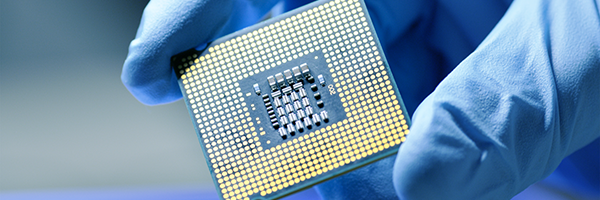If you liked the Trump administration’s trade war with China, you’ll love the Biden administration’s new, more dangerous, escalated version.
Rather than slapping tariffs on Chinese goods, and inviting retaliatory tariffs by China on American products, the Biden administration war limits the same of advanced semiconductors and chip-making equipment to Chines companies.
The action is aimed straight at the heart of China’s efforts to build its own chip industry. And it plays right into a belief, stoked by China’s President Xi Jinping, that China is the victim of a Western plot to prevent the country’s rise to its rightful place in the global order. (Which is, in this view, a continuation of the shameful subjugation of China to the West in the nineteenth century.) And the opening blows in this trade war come just as President Xi aims to be installed as China’s newest preeminent leader with a status near that of Mao.
I don’t know what the retaliation from China will be, but it is unlikely to stop with a few restrictions on how U.S. companies, such as Tesla (TSLA) and Apple (AAPL) operate in China.
The situation is so dangerous because it is so uncertain and so open-ended.
On Friday, October 7, the US Commerce Department on Friday unveiled sweeping regulations that limit the sale of semiconductors and chip-making equipment to Chinese customers. The agency also added 31 organizations to its unverified list, including Yangtze Memory Technologies and a subsidiary of leading chip equipment maker Naura Technology Group Co., severely limiting their ability to buy technology from abroad.
One of the not-so-hidden dangers in the U.s action is that it is so open-ended. The rules could be interpreted to apply to semiconductors and to industries that rely on high-end chips from electric vehicles and aerospace vehicles to smartphones. The Commerce Department’s announcement ran to more than 135 pages.
The new U.S. regulations broadly limit chipmakers from selling China artificial intelligence semiconductors (take that Nvidia and Advanced Micro Devices) and those that can be used for supercomputers. Specifically, the restrictions cover the production of logic chips using so-called nonplanar transistors made with 16-nanometer technology or anything more advanced than that, 18-nanometer dynamic random access memory chips, and Nand-style flash memory chips with 128 layers or more. They do not seem to apply to PCs or CPUs used in servers.
Commerce also put in place a raft of restrictions on supplying US machinery that’s capable of making advanced semiconductors. It’s targeting the types of memory and logic chips that are at the heart of state-of-the-art designs.
The two countries are now officially in an “economic war,” Dylan Patel, chief analyst at SemiAnalysis, told Bloomberg. “This is the U.S. salvo against China’s efforts to build its domestic tech capabilities,” said Patel, who estimates the restrictions could reduce global technology and industry trade by hundreds of billions of dollars. “It’s the U.S. firing back, making clear they will fight back.” China “has poured resources into developing supercomputing capabilities and seeks to become a world leader in artificial intelligence by 2030,” said Assistant Secretary of Commerce for Export Administration Thea Kendler. “It is using these capabilities to monitor, track and surveil their own citizens, and fuel its military modernization.”
“The reality is the U.S. is determined to use chips as a tool to contain China,” Gu Wenjun, head of Chinese chip researcher ICwise, wrote in an online commentary. “There is no possibility of reconciliation.”
While I’m uncertain what form China’s retaliation will take, I am certain that China will retaliate. And I think that it’s important to get your portfolio ahead of some of the more obvious moves. Some technology stocks like Nvidia (NDVA) have been so battered already that I’ll need to crank some valuation numbers before I decide to sell. I will, however, sell Asmel Holding (ASML), an essential maker of lithography equipment for chip-making tomorrow. I have already sold Advanced Micro Devices (AMD). Tomorrow I will also sell my shares of Tesla (TSLA) out of my Jubak Picks Portfolio. Apple (AAPL) was already looking at a tough sales environment in China. I don’t think this trade war will help and Apple is a high-visibility target. I have to run the numbers on Apple in more depth tomorrow but my preliminary estimates say “Sell. More tomorrow.


